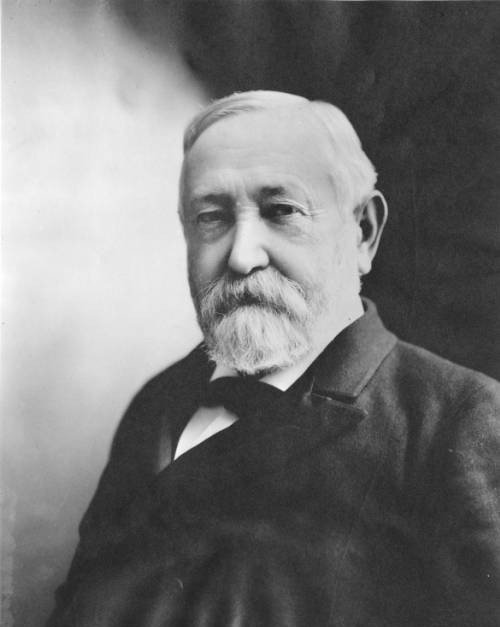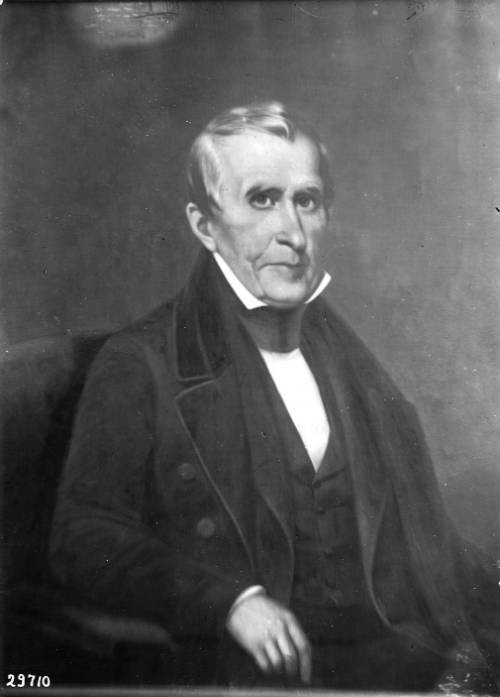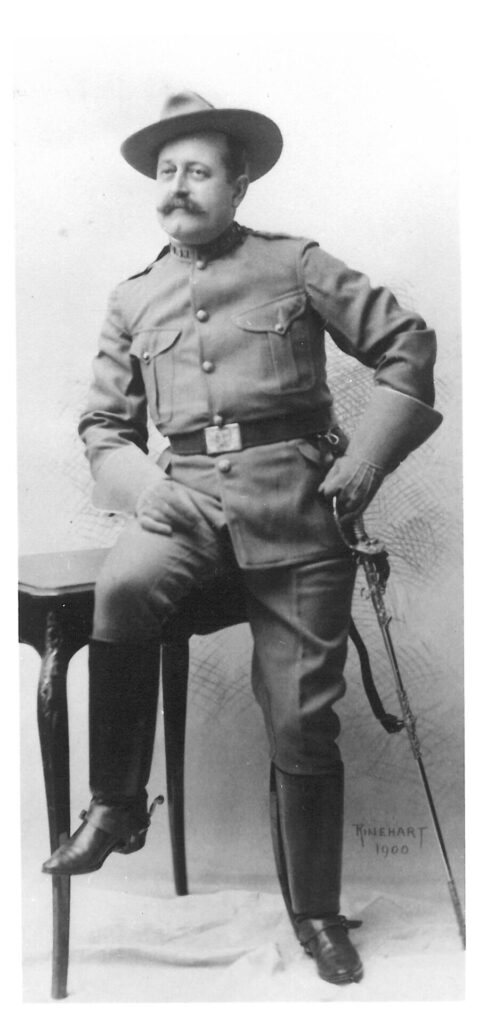
July 14, 2025

Spanning three generations, the Harrisons played active roles in the political and economic development of Latin America during a century of transformation. The 19th century was a time when European imperial powers were waning, and newly independent Latin American nations were emerging. It was also a period when the idea of Pan-Americanism began to take shape, a concept of political and economic solidarity among the nations of the Western Hemisphere.
The Harrisons engaged with Latin America not just as American statesmen, but as diplomatic interventionalists in a changing world. Their legacy is a reminder of how American politics and politicians contributed to shaping hemispheric relations during a formative era in the Americas.

William Henry Harrison (b. 1773 – d.1841), Minister Plenipotentiary to Gran Colombia, May 1828 – September 1829, President of the United States of America, March 4- April 4, 1841, IHS
While William Henry Harrison was serving in the U.S. Senate, he was appointed by President John Quincy Adams in 1828 as Minister Plenipotentiary to Gran Colombia (Greater Colombia). At the time, Gran Colombia, established in 1819, encompassed much of northern South America, present-day Colombia, Venezuela, Ecuador, Panama, and parts of northern Peru. It included the coasts of Nicaragua and Costa Rica. Although short-lived, Gran Colombia played a pivotal role in the region’s post-colonial transformation before dissolving in 1831.
As Minister Plenipotentiary, a rank just below ambassador, Harrison served during a volatile period in the region’s early history. Gran Colombia was governed by General Simón Bolívar, who was often called the “George Washington of Latin America” for his efforts to liberate several countries from Spanish rule. (Notably, Colombia was the first South American country to declare independence from Spain in 1810, while Haiti became the first Latin American country to achieve independence in 1804.)
Harrison was accompanied on his diplomatic mission by his son, Carter, and his secretary, Edward Tayloe. Tayloe had previously spent three years in Mexico as a personal secretary to Joel Roberts Poinsett, a U.S. Minister to Mexico. During Harrison’s tenure, while at a dinner with the Bishop of Cartagena, he famously toasted the people of Colombia and encouraged them to look to the United States as a model of leadership and liberty. However, due to the deep political instability in the region, this speech later caused rumors of a U.S. conspiracy. This led to tension for the remainder of his term. Following the inauguration of his political rival, President Andrew Jackson, Harrison was recalled and quickly returned home. Roughly a decade later, Harrison was elected President of the United States with John Tyler as his Vice President. Tragically, just three weeks after his 1841 inauguration, Harrison died, serving the shortest presidential term in U.S. history. To learn more about his experience in Colombia, it can be found in the 2021 Indiana Historical Society blog post by David Pleiss, titled Two Old Birds.

Benjamin Harrison (b. 1833 – d. 1901), President of the United States of America, 1889-1893, International Congress of American States, 1889, Senior Counsel for Venezuela, 1899, IHS
Benjamin Harrison’s involvement with Latin America during and after his presidency can best be described as more diplomatic than directly interventionist. His efforts were primarily rooted in the ideals of Pan-Americanism and the political and economic unification of the Western Hemisphere. These initiatives were shaped in part by the Monroe Doctrine of 1823, which asserted that the Western Hemisphere was closed to further European colonization and opposed the establishment of new monarchies or satellite powers by European empires.
The ideals of Pan-Americanism were supported by Simon Bolivar’s previous ideological groundwork, when he proposed the first Pan-American congress in Panama in 1826, known as the Congress of Panama. However, not all nations participated, and the United States delayed sending its delegates due to internal deliberations and skepticism about Bolívar’s intentions and the potential outcomes of the meeting.
When Benjamin Harrison became U.S. President in 1889, his Secretary of State, James G. Blaine, proposed convening a Pan-American Congress in Washington, D.C. By that time, several smaller congresses had already taken place among Latin American nations, with the United States selectively invited to participate. As more countries in the region gained independence and defined their borders, the idea of a hemispheric dialogue gained urgency. Blaine was the driving visionary behind the Congress and promoted Pan-Americanism as a framework for peacefully unifying the Western Hemisphere, primarily through trade and mutual economic development. However, tensions ran high during the International Congress of American States, with many Latin American representatives expressing skepticism about the U.S.’s intentions and its dominant role in organizing and leading the congress. Despite these concerns, the 1889–1890 Pan-American Congress laid the groundwork for future inter-American cooperation. In 1901, the second congress changed its name to Pan American Congress and was hosted in Mexico, which from the U.S. economic and political perspective, was widely viewed as the front door to Latin America.
In 1899, after his Presidency, Benjamin Harrison, then a practicing lawyer, served as senior legal counsel for the country of Venezuela, representing them in the court of arbitration in Paris over a dispute of the border between Venezuela and British Guiana. By utilizing the power of the Monroe Doctrine, Britain agreed to their demands, with the final resolution of a new drawn border that benefited Great Britain.

Russell B. Harrison, Lieutenant Colonel the Spanish American War, 1898
Inspector General of Puerto Rico, 1898, Honorary Vice Consul of Mexico – 1907-1931. Courtesy of the Benjamin Harrison Presidential Site
At the start of the Spanish-American War, Russell B. Harrison, son of President Benjamin Harrison, was called to serve. He initially held the rank of Major and Inspector General, and toward the end of the war, he became Inspector General of Puerto Rico. The war marked the end of Spain’s centuries-long colonial presence in the Americas and Asia, ushering in a new era of American imperialism and expanding the United States’ role in global affairs. The U.S. increasingly saw itself not only as a defender of its own democracy, but now as a guardian of democratic ideals worldwide.
After the war, Harrison returned to Indiana, where he established a law office in Indianapolis and later entered politics.
Almost a decade after the war, in 1907, Mexican President General Porfirio Diaz appointed Russell as an honorary consul (sometimes referred to as vice-consul) of Mexico, establishing a de facto consular presence in Indianapolis. This appointment was primarily meant to safeguard foreign interests between the two countries. Foreign and especially American investment in Mexico was generally favored due to geographical proximity and political stability, which played a key role in their economic growth, though it mostly benefited Mexico’s wealthy landowning elite. The widening gap between the rich and poor under Díaz’s regime ultimately fueled the Mexican Revolution and soon after, his exile.
Harrison continued to serve as Mexico’s vice-consul well after retiring from politics in 1927. His role remained largely quiet and out of the public spotlight. His last known public act in any consular capacity came in 1931, during the height of the Mexican Repatriation movement, when he advocated against the extradition of a Mexican national living in Indiana Harbor, who did not have due process. A few short years later, Russell B. Harrison died in 1937.
The involvement of these Indiana men in 19th-century Latin American affairs as American statesmen highlights their contributions to international relations and their role in shaping the global position of the United States.







Partner with us and enjoy recurring commission payouts! https://shorturl.fm/2WDAH